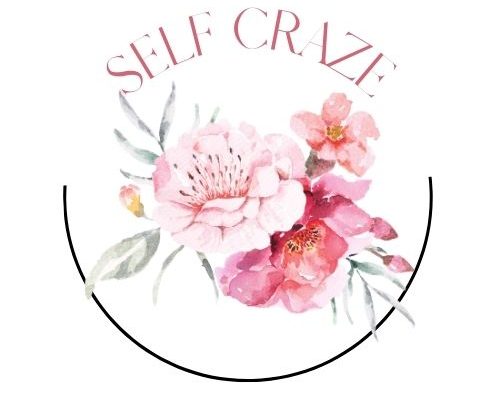
Initiating a conversation with a stranger may seem like a nightmare. Still, it’s nothing compared to the nervousness you experience, followed by stuttering and complete loss of words while initiating a deep, meaningful conversation with a loved one.
Be it your partner, a friend, an acquaintance, a cousin, or even a family member, words can sometimes leave your side while trying to strengthen your bond with someone over a cup of coffee in a cozy setting, which is really frustrating.
Breaking the ice with a small, lighthearted talk is simply not enough when it’s your third date.
Situations like these require deep conversation starters that can help analyze mutual compatibility and help develop an emotional and often spiritual bond with someone. As we often hear,
“Deep conversations with the right person are priceless.” (1)
Deep and meaningful conversations are rarely ever about the facts or what’s the weather tomorrow is like.
It is mostly based on conflicting ideas and perspectives, different interpretations of similar situations, or personal values. (2)
Provided you know what to listen for, there is no conversation known to be meaningless. Listening can be tough when the person you’re talking to has different views.
It’s natural to want to defend your own ideas, or even shut down altogether. But that’s where the magic happens.
When you truly listen, try to understand others’ perspectives, and not just wait for your turn to speak, you open yourself up to a whole new world of deep and meaningful conversations.
You might end up finding a common ground you never expected, or even have your viewpoint challenged and strengthened.
But initiating those deep conversations can be challenging. Let’s look into some of the most interesting deep conversation starters for dinner and why they work.

Deep Conversation Starters Backed By Evidence
Meaningful conversations are the lifeblood of strong bonds. They allow us to delve beyond surface interactions and connect with others on a deeper level.
Here, I present evidence-backed conversation starters, explore new categories to spark deeper connections, and provide questions to guide your journey toward developing stronger bonds.
1. Exploring Values and Aspirations
Consider this impactful quote by author Maya Angelou, (3)
“People forget what you said, people forget what you did, but people will never forget how you made them feel.”
When we connect with someone on a deeper level, understanding what truly matters to them, it goes beyond the superficial. It creates a sense of being understood and valued, fostering a stronger and more meaningful connection.
Studies show that understanding someone’s core values fosters trust and connection. (4) Here are a few examples of deep conversation starters that explore shared values and aspirations:
- What does the concept of ‘living a meaningful life’ mean to you?
- Imagine you win a large sum of money but can only donate it to a single cause. Which cause would you choose and why?
- What is your dream job, even if it seems unrealistic?
- If you could dedicate your life to a single cause, what would it be?
- If you could create a new world order based on one core principle, what would it be?
- What is a value you hold dear that might surprise people?
- Can you share a difficult choice that was against a core value? How did you handle it?
- What personal sacrifice would you be willing to make to achieve your biggest goal?
2. Challenge Perspectives but Respectfully
Research suggests respectful debate on differing viewpoints strengthens relationships. (5) Feels questionable, right?
Now think about two characters from your favorite TV show, for instance, “F.R.I.E.N.D.S.” Monica, known for her crazy love, which some might even call obsession, of cleanliness and organization, might clash with Phoebe’s free-spirited and unconventional approach to life.
However, through respectful discussions (as funny puns sometimes) about their contrasting values, they learn to appreciate each other’s perspectives and ultimately strengthen their friendship.
This shows how challenging viewpoints, when done respectfully and with a genuine desire to understand, can lead to deeper connections and a richer appreciation for another person’s worldview.
- I see your point about [topic]. Have you considered [alternative perspective]?
- Is there any evidence or data that supports the idea that [specific aspect of their perspective] might be true?
- What would make you change your mind on this issue?
- Can you share an experience that shaped your viewpoint on [topic]?
- Let’s play devil’s advocate for a moment. If we were to look at [topic] from the opposite perspective, what arguments could be made?
- If we could achieve the ideal outcome on [issue], what would that look like for everyone involved?
- Can you tell me more about the reasoning behind your stance on [topic]?
- Let’s brainstorm some creative solutions that address both your concerns and the potential benefits of [idea].
3. Unearthing Personal Growth
Sharing vulnerabilities and growth aspirations fosters intimacy and a sense of shared humanity. (6) Let’s take another example of Monica. Remember her emotional vulnerability?
Throughout the series, Monica grapples with insecurities about her competitive nature and struggles with her weight. However, by sharing these vulnerabilities with her friends, she not only receives support but also strengthens the bonds within the group.
The friends, in turn, open up about their own insecurities and growth areas, creating a sense of shared humanity and mutual understanding.
- What is one area of your life you’d like to become more mindful of? Why is it important to you?
- What is a skill you once thought was impossible for you to learn, but you surprised yourself by mastering? What is one thing you’re currently working on improving in yourself?
- What is your biggest fear related to your personal growth? How do you manage it?
- What is a mistake you’ve learned a valuable lesson from?
- If you could take a personal development course on any topic, what would it be and why?
- What is a fear you hold that you’d like to conquer someday?
- Have you ever had a mentor who significantly impacted your personal development? What did you learn from them?
- What skill or knowledge are you eager to learn more about?
4. Delving into Past Experiences:
Consider Sarah and Michael, colleagues who have always had a friendly rapport.
One day, during a casual conversation, Sarah mentions overcoming her fear of public speaking after a disastrous presentation in college. Michael, surprised, opens up about his own experience overcoming stage fright during a school play.
This example is the perfect demonstration of opening up and becoming more vulnerable. Sharing these past experiences not only fosters empathy and understanding but also creates a sense of vulnerability and connection.
They discover a shared experience that transcends the office environment, strengthening their bond and laying the groundwork for a deeper friendship. Studies also reveal that discussing past experiences (both positive and negative) strengthens bonds. (7)
- What is a defining moment that shaped who you are today?
- Have you ever met someone who had a profound impact on your life, even for a brief moment?
- Looking back, what is a turning point in your life that you’re grateful for?
- What is a dream you’ve had to let go of, and how did you handle it?
- If you could travel back in time and give your younger self one piece of advice, what would it be?
- What is a travel experience that truly transformed your perspective on the world?
- What is a hidden talent you discovered in yourself unexpectedly?
- What is the most embarrassing thing that’s ever happened to you?
5. Secret Sharing
Sharing secrets fosters trust and intimacy, as Brené Brown famously states, “Vulnerability is the birthplace of innovation, creativity, and change.” (8) (9) However, it’s crucial to gauge the level of comfort before initiating this category.
Let’s say two friends, who have known each other casually for some time have a particularly heartfelt conversation. One of them shares a secret childhood dream she’s never told anyone – to become a trapeze artist. The other one, surprised and touched by her vulnerability, reciprocates by sharing his own long-held ambition to write a science fiction novel.
This exchange of secrets deepens their connection and fosters a sense of trust and intimacy that strengthens their friendship.
- Is there a secret dream you’ve never told anyone?
- What is an unpopular opinion you hold strongly?
- What is something you’re passionate about that you rarely talk about?
- Have you ever done something completely out of character that you wouldn’t normally tell anyone?
- Have you ever had an encounter that you can’t explain logically?
- What is a small rebellion you’ve undertaken that most people wouldn’t know about?
- What is the most ridiculous thing you’ve ever convinced yourself of?
- Confess! Have you ever secretly borrowed something and forgotten to return it?
Remember, secret sharing is a powerful tool that builds trust and intimacy, but it should be used with discretion and respect. Also, discussing controversial topics (respectfully) can also reveal hidden aspects of someone’s personality. That’s just my unpopular opinion.

How To Make Them Work
- Active Listening: Truly listen to understand, not just to respond. Imagine you’re not just listening to their words but to the symphony playing behind them. Pay close attention to understanding the melody of their thoughts, the rhythm of their emotions, and the harmony of their experiences. Don’t be afraid to ask clarifying questions to ensure you’re truly in tune. Remember, active listening is a skill that strengthens with practice. (10)
- Vulnerability: Reciprocity is key. Share something personal after they have. Think of vulnerability as your secret weapon in this dance. Sharing something personal after they’ve opened up creates a sense of trust and emotional balance. It demonstrates that you’re not just there to collect information but to truly connect. However, introducing vulnerability requires gauging the comfort level of your partner. Start small and see where the conversation leads.
- Open-Ended Questions: Avoid the yes/no questions that lead to dead ends. Encourage elaboration and deeper exploration. Instead, use open-ended prompts that act as springboards for deeper exploration. For instance, instead of “Did you like that movie?” ask, “What resonated with you most in the film?” This encourages elaboration and fosters a richer conversation.
- Positive Regard: Maintain a respectful and supportive tone, even when there are disagreements, and watch it go a long way. Remember, the goal is to understand their perspective, not win an argument. Create a safe space for an open dialogue by acknowledging their viewpoint. This way you create a more enjoyable and meaningful conversation for both of you.
Remember, meaningful conversations are not one-sided interviews. They are an act of sharing, listening, and growing together.
Recommended Readings
It is an alternative to mundane conversation starters. This pocket-sized book features over 250 thought-provoking questions designed to spark deeper connections and broaden perspectives. Ranging from easy “softball” questions to challenging “hardball” inquiries, the book caters to various conversation depths and can be used in diverse settings, from casual gatherings to team-building events. “End Small Talk” encourages authenticity, curiosity, and a desire for meaningful interactions.
Aimed at navigating challenging conversations, “Crucial Conversations” equips readers with communication tools for high-stakes situations. The book offers a six-step method for fostering a safe environment where difficult topics can be addressed productively. It emphasizes assertive communication techniques to ensure clear expression without abrasiveness. Additionally, the book equips readers to handle emotional outbursts and maintain active listening. By mastering these skills, the authors claim readers can navigate crucial conversations in any setting, leading to positive outcomes and improved relationships.
Read more:







